The RAF has airlifted over 102 people who had already left Afghanistan from a neighbouring third country.
The Royal Air Force say in a news release that the airlifts took place across two flights and both have landed safely in the UK. Those on board will now receive support to begin their lives in the UK under Operation Warm Welcome.
“While repatriation flights and individual relocations have been taking place since the end of August, these flights are the first military relocation of eligible Afghans and British nationals since the end of the evacuation from Kabul, known as Operation PITTING. Those transported include vulnerable Afghans who fall under the Afghan Relocations and Assistance Policy (ARAP) who are eligible for relocation to the UK, and British nationals. Further flights are due to arrive in the UK in the coming weeks with more eligible people on board.”
Defence Secretary Ben Wallace said:
“In August we worked tirelessly to airlift more than 15,000 vulnerable Afghans and British Nationals from Kabul to the UK. As I made clear at the time, our commitment to the Afghan people did not end there. We are determined to do right by those who supported our Armed Forces for so many years and others who are at risk. These flights mark the beginning of what will be an enduring effort to relocate and support those who need our help.”
According to a statement from the UK government:
“The UK is working with international partners to ensure that as many routes as possible remain open to support the movement of British nationals and relocation of eligible Afghans to the UK. These flights mark the beginning of the next chapter of that effort.
After arriving in the UK, eligible Afghans will be processed and supported by the Home Office and MoD under Operation Warm Welcome to ensure they receive the support they need to build their lives in the UK. This includes indefinite leave to remain in the UK for those under the ARAP scheme, as well as funding for schooling and healthcare.”



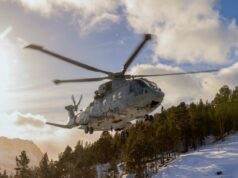
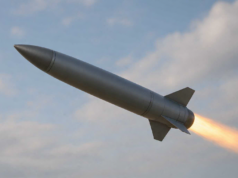
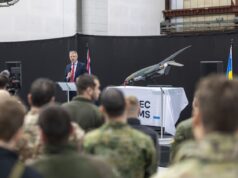
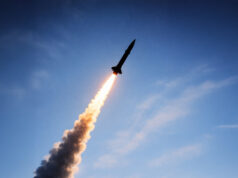
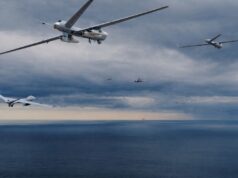
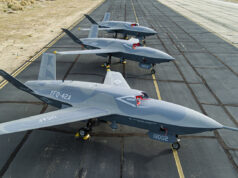
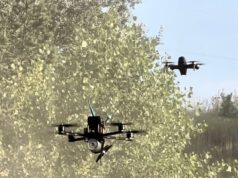
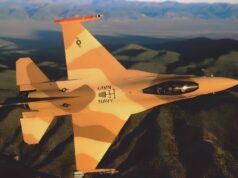

Bravo
We can & should do nothing else, we owe these people.
Totally agree with your comment, reminiscent of the fall of Saigon.
Even with today’s technologies, boots on the ground who have the will and determination to succeed seems to play a major factor in winning a war.
Not forgetting the political will and cost of course.
Nigel agree. Don’t get me started on Vietnam & Afghanistan. How did we manage to make the same mistakes twice??
In Vietnam the South Vietnamese fought for 2 years after the Paris Peace Accord, while Congress after Watergate provided very little aid to the south even while Soviets and China were shipping huge supplies to the North, just at the time of the Oil Shock following the Yom Kippur war.
Remember the image of the NVA P76 tank breaking down the Presidential Palace gates in Saigon. The NVA Army was fully equipped and supplied for an armoured invasion and still the ARVN hung on for about 2 years. The Afghan Army had much more NATO support but collapsed in weeks.
We betrayed the South Vietnamese but not the Afghans.
No South Vietnamese fled their country before Saigon fell yet thousands of Afghani men were fleeing their country even while NATO troops were fighting and dying to save their country. There is a great, great difference between Vietnam and Afghanistan.
Food for thought, comparing Vietnam and Afghanistan. western foreign policy has to do better. Im thinking you can’t impose democracy with a gun or even want too impose our values on others.
I suppose the more comparable element is the insurgency aspect of the two long campaigns, one supported by the North Vietnam, China and the USSR and the other supported by Pakistan and Iran and probably other state players….
The main point being that when an insurgency is ingrained and supported by foreign players, it’s time to pack up and bugger off, you simply won’t and can’t win, no matter how many troops you throw at it.
Afghanistan is nothing like Vietnam as Steve explains below. And no lack of will from the Armed Force’s. The politicians tide one hand behind everyone’s back, with very restrictive rules of engagement. And thousands of Afghan nationals gave there lives fighting the Taliban.
Vietnam & Afghanistan are precisely similar. Both fought not on our (western) ground in far away countries with difficult terrain against insurgencies who had sanctuary and support from other powers (Vietnam,Laos, Cambodia, USSR & China / Afghanistan, Pakistan, Iran and maybe Russia & China too). Both fought to bring democracy to third world countries with no tradition of democracy. Both fought against nations with a long tradition of opposing foreign intervention. Both fought backing up corrupt governments. Both fought without a general mobilisation of western forces. Both fought without a plan of how to eventually win. Both fought with the enemy knowing we would eventually withdraw.
I’m not taking anything away from all the brave people who fought; they are heroes. Unfortunately the politicians committed us to the wrong war in the wrong place at the wrong time and then didn’t have the guts to change policy until it was too late.
Yes. It’s the least we can do.
It’s heartening to hear we haven’t stopped in our efforts to bring to UK those Afghans who have given good service to us during the conflict. However, some those who have already arrived are saying they have been stuck in hotels since arriving and don’t know what their future will be.
Let’s hope they are looked after properly.
I have a lot of confidence in our armed forces, But I’m not sure that it extends to the Home Office to be honest…
Cheers CR
Name me any Govt dept which has EVER inspired confidence!
Cheers!
Hmm, on reflection I can’t.
Which is very sad as I worked for the MoD as a techie for 12 years. There were many many very good people at RAE, where I worked, doing lots of very clever stuff which just seemed to go unnoticed…
It seems that we have created a mediocracy. Of course, I am assuming that we were something else to start with, but perhaps we were always a mediocracy.
If this is the case it would explain why we, as a society, cannot deal with the big challenges we face until they become crisies.
The question is how do we depose mediocrity and avoid self inflicted crises?
Cheers CR
Off topic, but interesting
https://www.janes.com/defence-news/defence/latest/uk-sets-sights-on-interim-strategic-sealift-capability